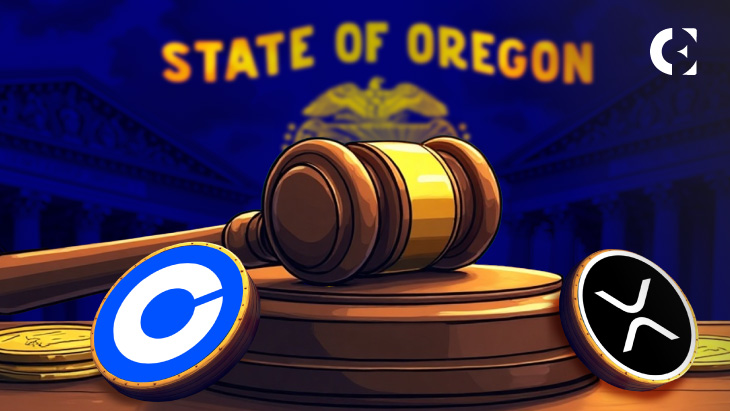- Oregon sues Coinbase for securities law violations.
- XRP is cleared federally, but state laws pose new risks.
- Experts warn of fragmented enforcement across jurisdictions.
As XRP seemed to gain clearer federal standing, a new Oregon lawsuit targeting crypto exchange Coinbase stirs fresh concerns about potential state-level clampdowns. Last week, Oregon Attorney General Dan Rayfield filed a 171-page lawsuit against the exchange, alleging violations of the state’s securities laws.
While XRP isn’t named, the case reignites questions on state vs. federal authority in defining crypto laws.
Oregon Alleges Disclosure Failures Amid “Enforcement Vacuum”
The lawsuit claims Coinbase allowed the sale of virtual currencies without providing “robust disclosures of material information,” a requirement under Oregon’s administrative rules.
Rayfield’s office suggested states are now stepping in to fill an “enforcement vacuum” possibly left by shifting SEC priorities. Legal experts immediately warned this patchwork state enforcement risks compliance chaos for exchanges and token issuers like Ripple, potentially impacting XRP.
Related: Spotlight on XRP, Solana as 72 Crypto ETFs Seek SEC Approval This Year
University of Oregon law professor Liz Tippet characterized the lawsuit as a “suboptimal workaround” for failed federal oversight, adding, “It’s no substitute for coordinated federal regulation.” Coinbase Chief Legal Officer Paul Grewal strongly blasted the suit on X, calling it “resurrecting the dead” and “political jockeying.”
Why State Actions Still Matter for XRP
Oregon’s move adds a new layer of legal complexity for assets like XRP, which scored a partial win against the U.S SEC. Last year, a federal judge declared XRP was not a security in itself, but that doesn’t guarantee protection in every jurisdiction.
Related: Analyzing Ripple’s Choice of Singapore for Key XRPL Apex 2025 Summit
If state laws redefine or reinterpret disclosure obligations, exchanges listing XRP could still face legal consequences, even if the token is federally compliant. This dual-track legal system puts crypto assets at the mercy of both federal and state scrutiny, raising fresh concerns for developers, investors, and platforms alike.
Timing Clashes with Hopes for Federal Progress
This state-level action injects uncertainty just as market optimism slowly returns, fueled by hopes for new SEC Chair Paul Atkins’ balanced approach and 70+ pending crypto ETFs (including XRP/Solana).
While federal progress seems possible, clashes with state rules mean XRP’s legal saga may continue, shifting focus to state courts like Oregon’s.
Disclaimer: The information presented in this article is for informational and educational purposes only. The article does not constitute financial advice or advice of any kind. Coin Edition is not responsible for any losses incurred as a result of the utilization of content, products, or services mentioned. Readers are advised to exercise caution before taking any action related to the company.







